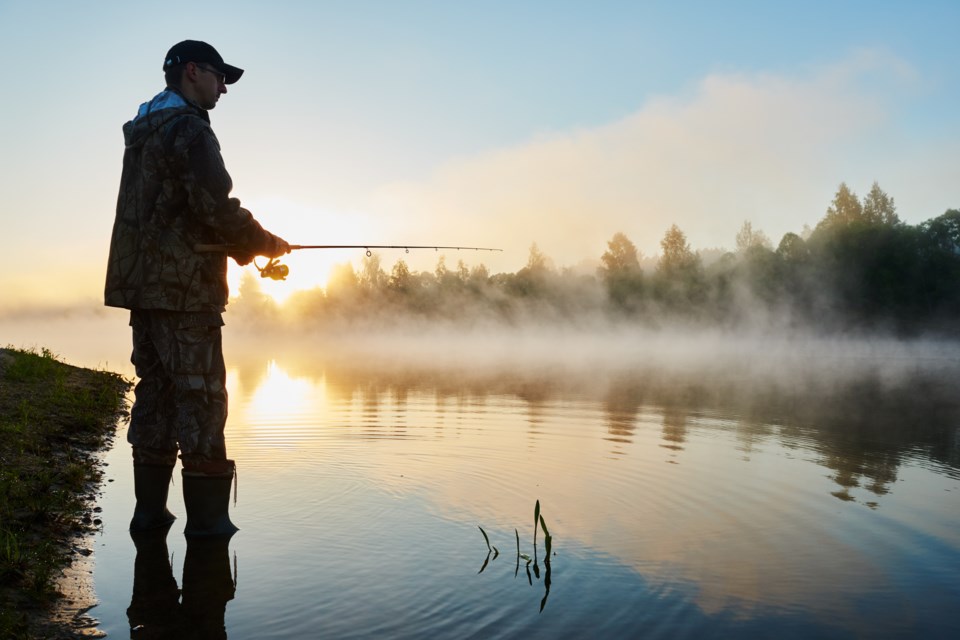LAKELAND - A volunteer fisheries biologist with a focus on Lakeland water bodies says increasing fish harvesting opportunities will improve fishing opportunities and boost tourism and economic development in rural areas.
It’s a message Ray Makowecki has repeated for many years, each time hoping to get the attention of government officials, especially during consultation times prior to the release of annual sportfishing regulations.
Makowecki, a retired biologist and member of the Alberta Next Step Team, tells Lakeland This Week that increasing fish harvesting opportunities and sustainable use of fish resources is important to communities across the Lakeland and across the province.
“Our main message is to encourage anglers and concerned people to request government to make changes to the 2024-25 Sportfishing regulations that will increase fishing opportunities by creating low risk sustainable harvest regulations,” Makowecki explained.
Proposed changes to regulations
The long-time advocate of sustainable fishing opportunities said the government will soon begin its annual process to set the fishing regulations for the 2024 season. In past years, municipal leaders and stakeholders have banded together to present a united front on suggestions for the regulations. In recent years, the Alberta Next Step Team was created to formalize the stakeholder group. In most cases, the group challenges restrictions, catch limits and closures of lakes they know to have larger fish populations than government data shows.
As new regulations are being prepared, the Next Step Team is proposing several revisions to the Alberta Sportfishing Regulations that will adopt a low-risk sustainable harvest on all provincial pike and perch, walleye and pike, and winter-kill and summer-kill lakes.
These changes are for:
Pike-perch lakes that would permit a two-day pike limit of any size and a 10 or 15 perch daily limit.
Walleye-pike lakes that would permit a one or two walleye daily limit with a slot-size limit of 43-50 cm and a one-pike daily limit with a slot-size of 55-65 cm and a 10 or 15 perch daily limit.
Winter-kill and summer-kill lakes that would permit a one-walleye daily limit of any size, two-pike daily limit of any size, and 10 or 15 perch daily limit.
“Many of the pike-perch lakes and the walleye-pike lakes currently have zero pike harvest limits and zero walleye harvest limits,” Makowecki said, explaining that the Alberta Next Step Team would also like to see changes to regulations regarding harvest in numerous lakes throughout Lac La Biche County, including Touchwood, Heart, Beaver, Lac La Biche, and Pinehurst. “We believe that low risk sustainable fish harvest regulations would not harm the fish resources and would allow increased fishing that would increase tourism in rural communities. Also, this would allow Albertans to eat fish from our lakes.”
Up for review
The Alberta Next Step Team has also suggested that such regulation changes could be reviewed in a few years to determine the status of fish populations. In addition to these regulatory changes, the organization is also encouraging the government to increase fishing opportunities by restoring fish habitats and transplanting/stocking pike-perch in lakes that previously had healthy fish populations. These lakes include Frenchman, Muriel, and Upper Mann.
Makowecki said local anglers often have a good idea of the health of the various fish populations in their own lakes. Anglers can use this knowledge to provide insight into how they would like to see the fishery managed.
“By listing specific lakes in their areas that they believe could provide a limited harvest while sustaining the fish resource, they would be
contributing useful information for revising the regulations,” he said.
An overabundance of walleye
Following years of restrictions placed on walleye fishing in many area lakes, Makowecki says walleye appear to be abundant in many lakes, and in some lakes, overpopulated. This, he says, reduces the population sizes of other fish species.
“Many anglers have for several years expressed concerns about abundant walleye and the government data appears to verify the status of these fish populations,” he explained.
Regulations reducing fish harvest
According to the Alberta Next Step Team, over the past 25 years, restrictive fishing regulations have significantly reduced fish harvest. As a result, the number of resident angling licences sold has declined even as Alberta’s population has increased.
“Government data and angler catch information suggests abundant walleye in several lakes and healthy pike populations in the pike-perch lakes,” he said. “Yet, there is reluctance to open lakes to harvest.”
Makowecki said the provincial government uses a Fish Sustainability Index for pike that in all likelihood is not achievable in walleye-pike lakes.
“Some pike-perch lakes appear to have abundant pike with catch limits of three pike daily with no size restrictions,” he said, adding that these lakes continue to maintain healthy sustainable pike populations.”
A spokesperson with the Alberta government, who asked not to be named, said each year, fisheries program staff engage Alberta residents on a series of proposed changes to sportfishing rules. This consultation provides a way for Albertans to share their opinions about the regulations.
“Information received through the annual sportfishing engagement, in conjunction with science-based information provided by Environment and Protected Areas, are both instrumental in guiding Alberta’s sportfishing regulations,” the spokesperson said.
Public consultation in January
Engagement sessions are planned to take place in January and February. These sessions are held annually as a means of gathering input about proposed changes.
These regulations are then published in the Sportfishing Guide to Angling Regulations which is released for the start of fishing season on April 1.
“Alberta’s anglers are passionate about our fisheries, and we look forward to hearing from them as part of our annual review of the regulations conducted in preparation for the 2024-25 angling season,” the spokesperson continued.



